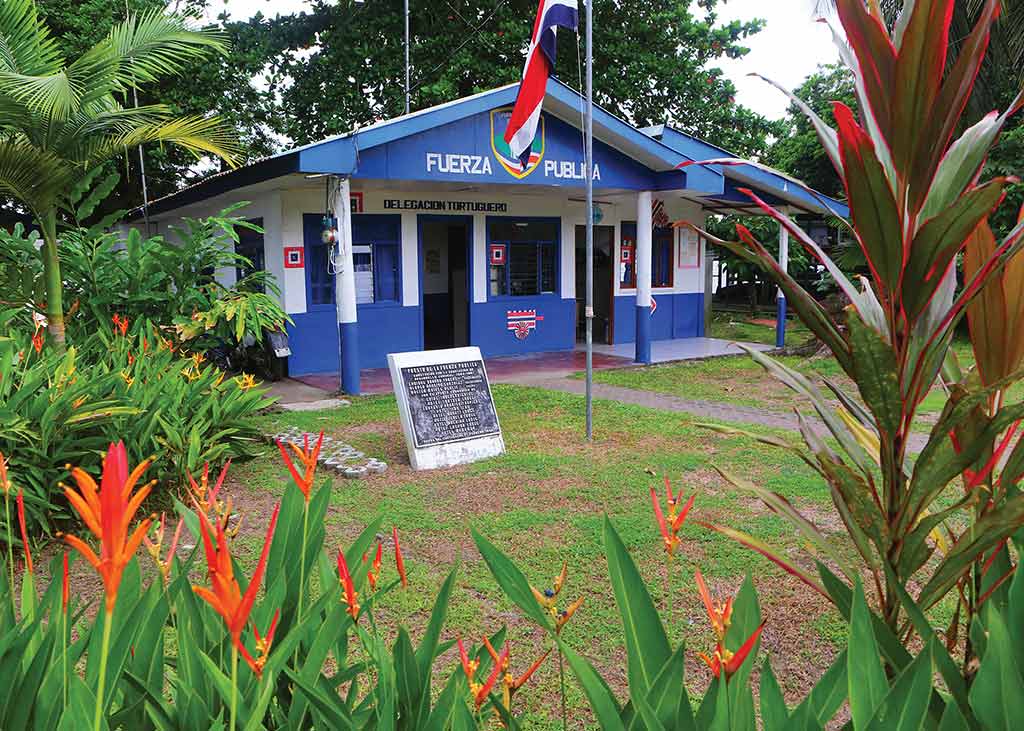Staying safe while traveling in Costa Rica is one part preparation and two parts common sense. You’ll find most of these tips apply to travel almost anywhere, but there are a handful of specific precautions you can take to ensure both you and your possessions are safe in Costa Rica. The Instituto Costarricense de Turismo publishes a leaflet—”Let’s Travel Safe”—listing precautions and a selection of emergency phone numbers. It’s given out free at airport immigration counters. The ICT operates a 24-hour toll-free tourist information line (tel. 800-012-3456) for emergencies.
Purses should have a short strap (ideally, one with metal woven in) that fits tightly against the body and snaps closed or has a zipper.Firstly, make photocopies of all important documents. Carry these with you and leave the originals in the hotel safe if possible. If this isn’t possible, carry the originals with you in a secure inside pocket. Don’t put all your eggs in one basket! Prepare an “emergency kit” to include photocopies of your documents and an adequate sum of money in case your wallet gets stolen. If you’re robbed, immediately file a police report. You’ll need this to make an insurance claim.
Police station in Tortuguero. Photo © Christopher P. Baker.
Don’t wear jewelry, chains, or expensive watches. Never carry more cash than you need for the day. The rest should be kept in the hotel safe. For credit card security, insist that imprints are made in your presence. Make sure any incorrectly completed imprints are torn up. Destroy the carbons yourself. Don’t let store merchants or anyone else walk off with your card. Keep it in sight!
Never leave your purse, camera, or luggage unattended in public places. Always keep a wary eye on your luggage, and never carry your wallet in your back pocket. Carry bills in your front pocket beneath a handkerchief. Carry any other money in a money belt, inside pocket, a “secret” pocket sewn into your pants or jacket, or in a body pouch or an elastic wallet below the knee. Spread your money around your person.
Don’t carry more luggage than you can adequately manage. Limit your baggage to one suitcase or duffel. Have a lock for each luggage item. Purses should have a short strap (ideally, one with metal woven in) that fits tightly against the body and snaps closed or has a zipper. Always keep purses fully zipped and luggage locked.
Don’t trust locals to handle your money, and don’t exchange money before receiving the services or goods you’re paying for. Be particularly wary after getting money at a bank. And be cautious at night, particularly if you intend to walk on beaches or park trails, which you should do with someone trusted wherever possible. Stick to well-lit main streets in towns.
Don’t leave anything of value within reach of an open window. Make sure you have bars on the window and that your room is otherwise secure (bringing your own lock for the door is a good idea). Don’t leave anything of value in your car, nor leave tents or cars unguarded. Be especially cautious if you have a flat tire, as many robberies involve unsuspecting travelers who are robbed while changing a tire by the roadside. The ICT advises driving to the nearest gas station or other secure site to change the tire. And never permit a Costa Rican male to sit in the back seat of a taxi while you’re in the front; there have been several reports of robberies in taxis in which the driver has worked in cahoots with an accomplice, who strangles the victim from behind.
Never allow yourself to be drawn into arguments (Costa Ricans are usually so placid that anyone with a temper is immediately to be suspected). And don’t be distracted by people spilling things on you. These are ruses meant to distract you while an accomplice steals your valuables. Remain alert to the dark side of self-proclaimed good Samaritans.
Excerpted from the Tenth Edition of Moon Costa Rica.